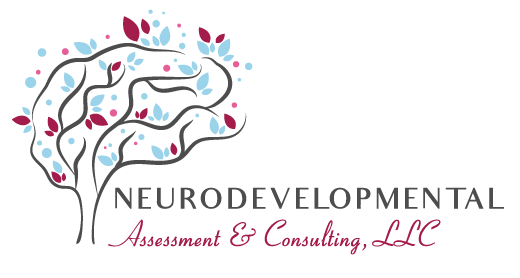Due to an unexpected medical situation, this program is currently on hold indefinitely (updated January 2026).
 Our Neurodevelopmental Consultation and Intervention (NCI) program is a new offering by Dr. Manfredi for 2026. The focus of our NCI program is to foster and develop cognitive skills that enhance learning, growth, and development, particularly for children, teens, and adults with cognitive, intellectual, and learning disabilities. For far too long and far too often, individuals with these conditions and their families have been encouraged to accept things as “just part of _______ (insert condition).” This viewpoint has created a culture of lowered expectations and limited opportunities. NCI, in contrast, seeks to offer hope and meaningful engagement and opportunities to those who are often overlooked and underserved in treatment and educational settings. Using techniques and strategies that are grounded in an understanding of neurodevelopment, neuroplasticity, and how the brain learns, the NCI program seeks to stimulate and enhance cognitive processes and teach how to learn (not what to learn). NCI recognizes both the capabilities, capacities, and competence of an individual with a cognitive, intellectual, or learning disability, while also acknowledging the unique impact of that disability on his or her learning and development. The NCI program can be provided to individuals and families directly, as well as implemented in educational settings, including public, private, or homeschool environments.
Our Neurodevelopmental Consultation and Intervention (NCI) program is a new offering by Dr. Manfredi for 2026. The focus of our NCI program is to foster and develop cognitive skills that enhance learning, growth, and development, particularly for children, teens, and adults with cognitive, intellectual, and learning disabilities. For far too long and far too often, individuals with these conditions and their families have been encouraged to accept things as “just part of _______ (insert condition).” This viewpoint has created a culture of lowered expectations and limited opportunities. NCI, in contrast, seeks to offer hope and meaningful engagement and opportunities to those who are often overlooked and underserved in treatment and educational settings. Using techniques and strategies that are grounded in an understanding of neurodevelopment, neuroplasticity, and how the brain learns, the NCI program seeks to stimulate and enhance cognitive processes and teach how to learn (not what to learn). NCI recognizes both the capabilities, capacities, and competence of an individual with a cognitive, intellectual, or learning disability, while also acknowledging the unique impact of that disability on his or her learning and development. The NCI program can be provided to individuals and families directly, as well as implemented in educational settings, including public, private, or homeschool environments.
NCI process and cost for individuals and families:
- Initial intake with Dr. Manfredi (60-90 minutes): $350
- A review of the individual’s history, strengths, challenges, and goals. Based on that information, an intervention plan is developed. Can be conducted in-person or virtually in any PSYPACT-participating state.
- This intake is waived for individuals who have been evaluated in our office within the last 12 months.
- Intervention Monitoring: $300/month (Introductory offer: as a new program, we are offering a discounted rate of $200/month for the first 10 participants for the first 6 months)
- 2, 30-minute consultations per month with Dr. Manfredi (in-person or virtual) to assess and monitor progress
- Ongoing cognitive stimulation activities, which can be digital, paper-and-pencil based, or activity based. Activities may focus on a range of areas relevant to each individual, including, but not limited to:
- Attention
- Knowledge
- Language
- Memory
- Praxis
- Visuospatial skills
- Social cognition
- Increasing independence in daily activities
- Email correspondence with Dr. Manfredi for questions between meetings (responses within 2 business days)
- Updates and adaptations to intervention plan, as needed
If you are interested in participating in this new program, please contact us and request to be added to our interest list. Programs will start with Dr. Manfredi in early 2026. If you would like to discuss implementing a program at your school or co-op, please contact us to discuss further.
Frequently Asked Questions
What is the theoretical basis of NCI?
NCI is based on theories and knowledge from the fields of neuroscience, neuropsychology, developmental psychology, and education. In this approach, Dr. Manfredi combines her knowledge and expertise of how the brain develops and learns to target specific neurocognitive areas that can enhance learning, behavior, and development. Strategies and intervention techniques are drawn from the fields of education and rehabilitation and adapted in terms of difficulty and focus.
Who can benefit from the NCI program?
While most people can benefit from strategies designed to maximize their neurocognitive functioning, our program is focused on those with developmental and learning challenges, including intellectual and developmental disabilities, genetic and neurological syndromes (such as Down syndrome, Noonan syndrome, 22q11.2 deletion syndrome, etc.), traumatic and acquired brain injuries or neurological differences (such as prematurity, seizures, strokes, anoxic injuries, head injuries, etc.), learning disabilities (reading, math, and/or written expression), attention and executive functioning challenges, and communication differences. Our program works with individuals with these conditions throughout the lifespan, including children, teens, and adults.
My child is receiving special education services in their school? Are they already receiving these interventions?
In all likelihood, they are not receiving services to stimulate and enhance their neurocognitive functioning. Instead, typical special education programs tend to focus on specific academic content (such as reading or math), often without addressing the underlying neurocognitive processes that are affecting these areas. Additionally, many special education programs and services are reactive, rather than proactive. That is, we often wait for children to struggle or fail before intervening, rather than engaging in activities designed to stimulate, promote, and enhance functioning.
Is the NCI program tutoring? How does it differ from tutoring that my child may be receiving? Is it the same as executive function coaching?
NCI is not a tutoring program. Tutoring focuses on specific subject and content areas, while NCI focuses on the underlying neurocognitive skills and abilities that apply to all aspects of academic learning, as well as in daily life and activities. Tutoring focuses on what the person is learning, while NCI focuses on helping them learn how to learn and apply skills and knowledge. NCI is also different from executive function coaching, as it has a broader scope of focus. While executive functions may be targeted by NCI, they are one of many neurocognitive areas that can be addressed.
How can I pay for the NCI program? Is it reimbursable by medical insurance?
Our office strives to make our services affordable and attainable to as many families as possible. We are offering reduced rates for the first 10 participants as we introduce this new program to our practice. Additionally, we are willing to partner with public and private schools to offer these programs to their students or to provide services using compensatory education/settlement funding. Families can also look into whether these services may be covered by an HSA or FSA or consult with an accountant knowledgeable in special needs as to whether they may be tax-deductible.
If a child can’t learn the way we teach, maybe we should teach the way they learn. -Ignacio Estrada

